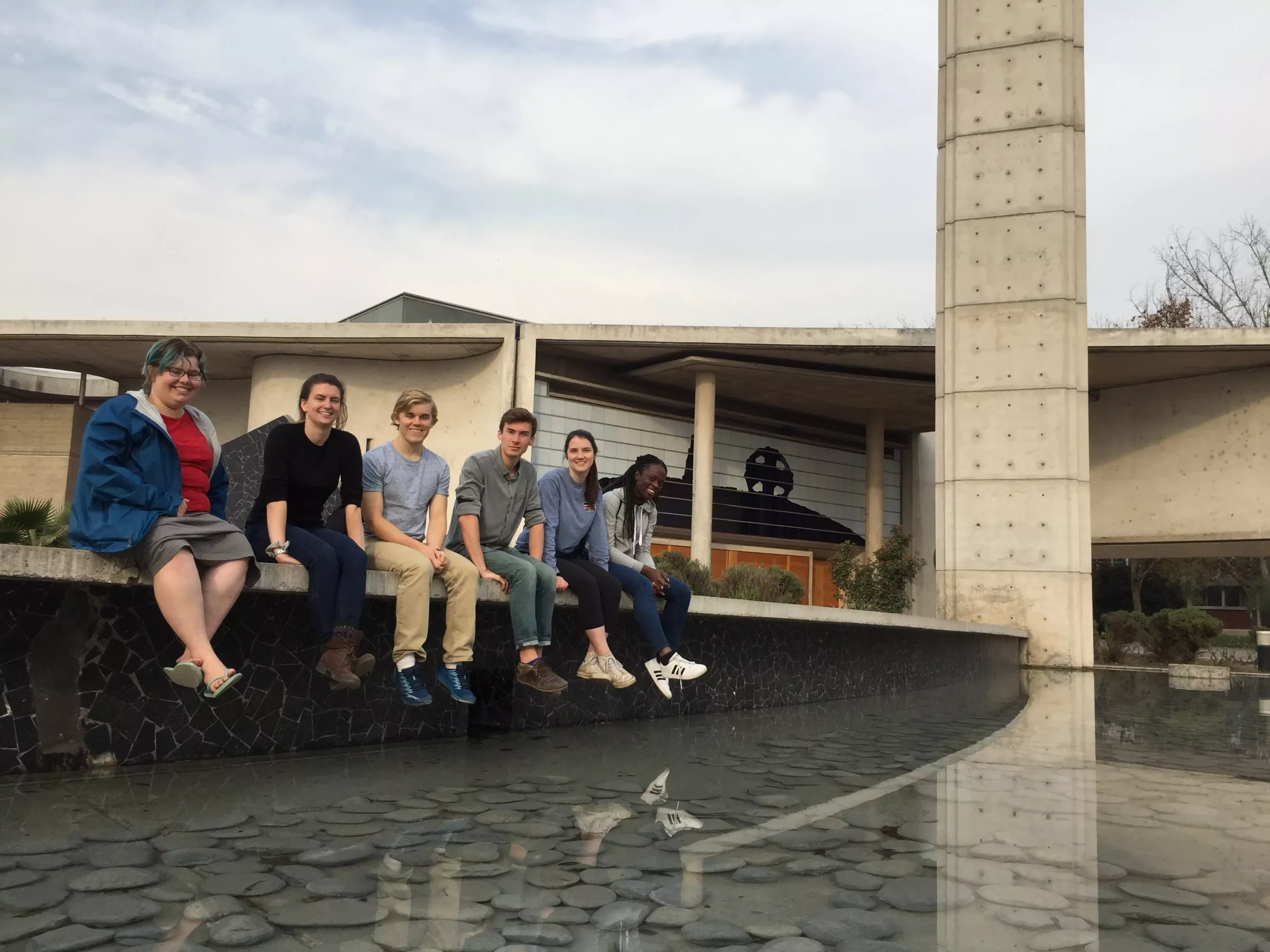Three Continents, One Educational Journey


After adjusting to a new city and language twice in the past six years, Edith Tea is familiar with the challenges of finding herself in a new living situation.
“It definitely felt like when I first arrived,” Tea said, comparing her experience first moving to the United States to her study abroad journey with the IFSA Chilean Universities Program in Santiago, Chile. “I want to say things but I can’t say them because I don’t know the words.”
Born in Abidjan, the largest city in Ivory Coast, Tea grew up speaking French and attended a school meant to prepare her for university in France. After her mother won a lottery for a U.S. green card for her and her family, that outlook shifted across the Atlantic.
“My parents already perceived that university in the U.S. would definitely be better than in France,” Tea said, “just because of the amount of opportunities, and the system is just different.”
The family began filling out the necessary paperwork with the hope of moving to the United States, only to be interrupted by an electoral conflict. In the election of 2010, incumbent president Laurent Gbagbo was proclaimed victor, a title that opposition leader Alassane Ouattara also claimed, believing it was wrongfully bestowed. Conflict erupted in the West African nation, and the Tea family put their plans on hold temporarily to wait out the violence.
After the hostility subsided, Tea’s sister encouraged her parents to continue with the process and, in 2012, the family was finally able to move. Following the path of her father’s best friend, they moved to Philadelphia, and were quickly thrown into a new culture.
“I lived in the city which was nice,” Tea said, “but definitely there were a lot of differences.”
After one year of ESL, Tea was placed into an International Baccalaureate (IB) program, where she initially had trouble connecting because of language and cultural barriers.
“Because I was still learning and I didn’t really know the cool things, it was just a very different world for me, and it took me a while to adapt and really make strong relationships with people,” Tea said. “For a long time, I felt pretty alone because of that, because of not being able to communicate, kind of like how I feel here sometimes.”
In time, however, Tea learned more about the norms and customs of American culture and began to feel more comfortable with her language skills. Soon, she found herself looking at colleges. With an organization called Philadelphia Futures, Tea was given the opportunity to attend college with a scholarship, which played a pivotal role in her choice of schools.
“I get to go to school for free. It’s awesome; I would never imagine going to school for free,” Tea said. “I went to Gettysburg [College] even though it wasn’t especially the place that I wanted but just because I was really thankful for having this opportunity.”
Because of Philadelphia Futures, Tea felt prepared for the application process, how to write essays and the act of getting into college, but once she started her freshman year, she found herself confused about what classes to take for her desired physics major. She began her course load her second year, and with a double major in Spanish, she was looking for a study abroad program that would allow her to complete physics requirements while still learning Spanish, a program that she found with IFSA.
“The study abroad office at my school helped me out,” Tea said. “I didn’t really know anything about Chile, but I just knew that they were allowing me to get the classes that I wanted, and learning Spanish, and I did more research about it and I liked it.”
After deciding on the program, Tea said she didn’t face any specific challenges applying given her unique background, but upon arriving in Santiago, she was again thrown into a brand-new world. Surrounded by seven million Spanish speakers in a bustling capital city, she found herself having to adapt to new norms and customs just as she had in 2012, whether in greeting everyone with a kiss on the cheek or learning to dance to salsa and reggaeton.
Another difference Edith found in her transition to Chilean life is the reaction to the color of her skin. Living in a much more homogenous society, Tea says it is more difficult to blend in with the people around her.
“Here I’m standing out more as a foreigner,” Tea said. “In Philly, I could just play it off and pretend like I was there for a while, but here it’s like I definitely stand out more.”
Although the transition was difficult, Tea says the program helped her out by placing her with a host family that was accommodating and understood her needs.
“She’s very aware culturally of where I’m from or like what I need to do when I wash my hair, knows that it takes two hours and that I can’t do it every day,” Tea said about her host mother. “She just knows a lot about who I am, and she seems very open and interested in learning about not only the U.S. but other cultures.”
After two months, Tea says she has enjoyed being able to mix with French-speakers and English-speakers as well as learning about Chilean culture. Her multicultural upbringing has allowed her to make the most of her time abroad, and for other international students looking to study abroad, she recommends branching out.
“You feel like you’re exploring more, you feel like you’re discovering more and you feel like you’re learning much more. It just expands your mind,” Tea said. “I would say just don’t be scared to look for foreign things and keep being as international as you can.”
David G. | Journalism and International Studies major | Northwestern University | Chilean Universities Program, Santiago | Fall 2017 | IFSA International Correspondent